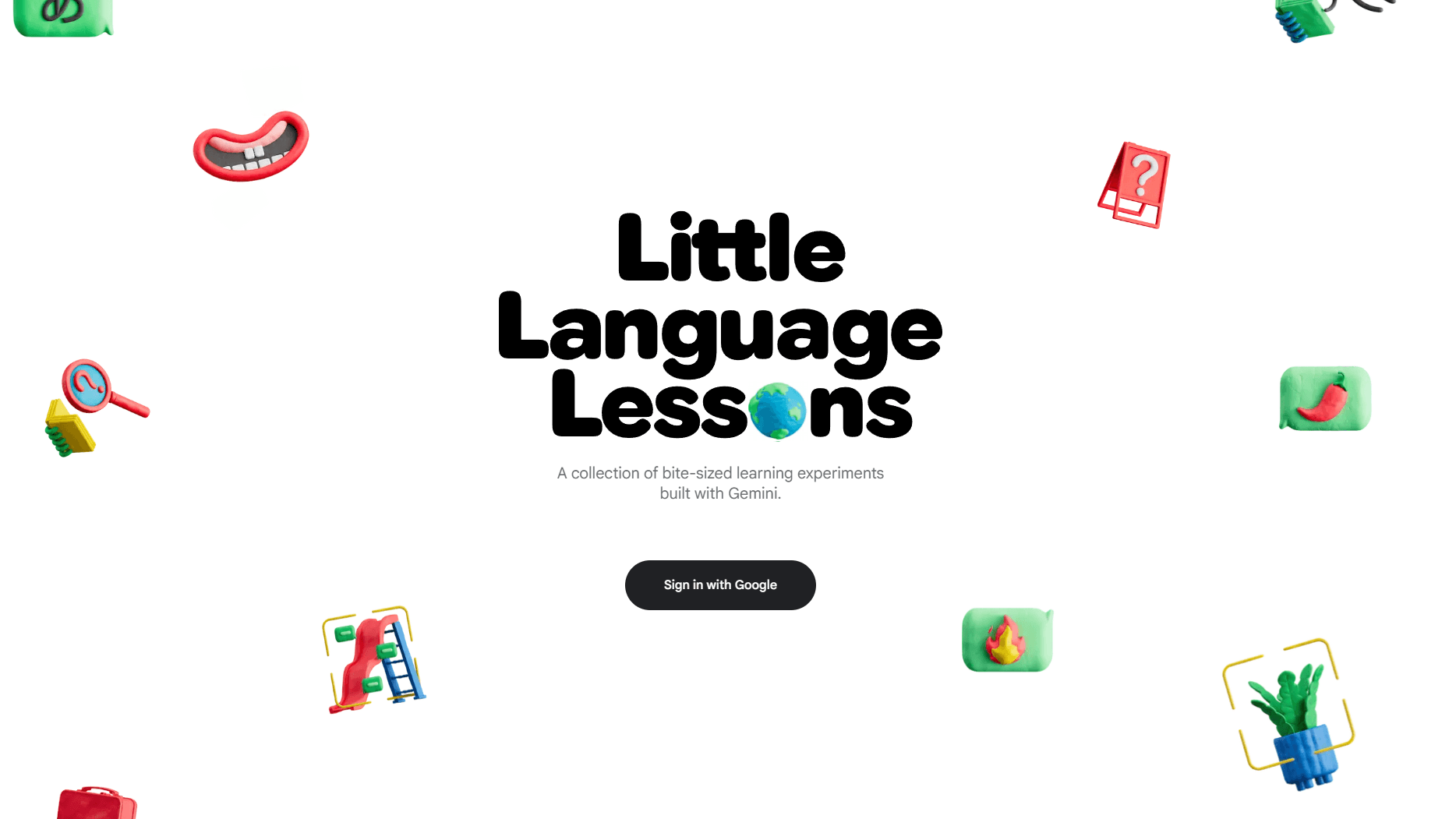Google’s “Tiny Lesson” generates just-in-time vocabulary for whatever scenario you throw at it

Google is piloting new AI-powered language learning formats with its “Little Language Lessons” experiments. Instead of relying on fixed vocabulary lists, these tools are designed to support situational learning.
The three language learning experiments, released via Google Labs, are integrated directly into the AI note-taking platform NotebookLM and run on Gemini, Google’s language model. Unlike traditional apps that focus on static vocabulary and grammar exercises, Gemini generates content dynamically based on the user’s described scenarios or environments. Results are delivered as structured JSON objects, and include text-to-speech features to assist with pronunciation.
Introducing “Tiny Lesson”: on-demand vocabulary for real-world situations
The “Tiny Lesson” feature provides vocabulary and grammar suggestions tailored to user-defined contexts—such as “finding a taxi at the airport” or “reporting a lost ID.” Output includes relevant terms and phrases, along with translations and transliterations. Content is generated through two Gemini API calls, using a prompt template.
Another common challenge in language learning is sounding overly formal or textbook-like, even with strong comprehension and fluency. The “Slang Hang” feature addresses this by generating realistic dialogues between native speakers, complete with colloquial expressions, idioms, and cultural references.
These scenarios—for example, a conversation between colleagues on the subway or a reunion between friends—are produced in a single Gemini pass, including context descriptions, speaker roles, and explanatory notes. Users can reveal each part of the dialogue step by step and look up unfamiliar terms. Translations are handled by Google’s Cloud Translation API.
Google notes that the feature is not yet fully reliable: slang may sometimes be misused or even invented.
The “Word Cam” feature, by contrast, leverages the device camera to identify objects in the user’s environment and provide corresponding vocabulary in the target language. Gemini detects and localizes objects using bounding boxes, then supplies vocabulary with an example sentence and translation.
AI-powered language learning in NotebookLM
All three experiments are embedded in NotebookLM, Google’s platform for AI-supported knowledge management. They share the same technical foundation as the Audio Overviews feature, which now supports 75 languages—including less commonly taught ones like Latin and Basque. For now, the interactive version is available only in English.
Little Language Lessons is available to try through Google Labs.
AI News Without the Hype – Curated by Humans
As a THE DECODER subscriber, you get ad-free reading, our weekly AI newsletter, the exclusive "AI Radar" Frontier Report 6× per year, access to comments, and our complete archive.
Subscribe nowAI news without the hype
Curated by humans.
- Over 20 percent launch discount.
- Read without distractions – no Google ads.
- Access to comments and community discussions.
- Weekly AI newsletter.
- 6 times a year: “AI Radar” – deep dives on key AI topics.
- Up to 25 % off on KI Pro online events.
- Access to our full ten-year archive.
- Get the latest AI news from The Decoder.